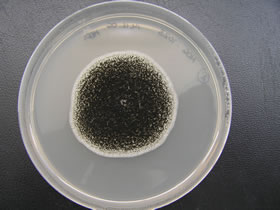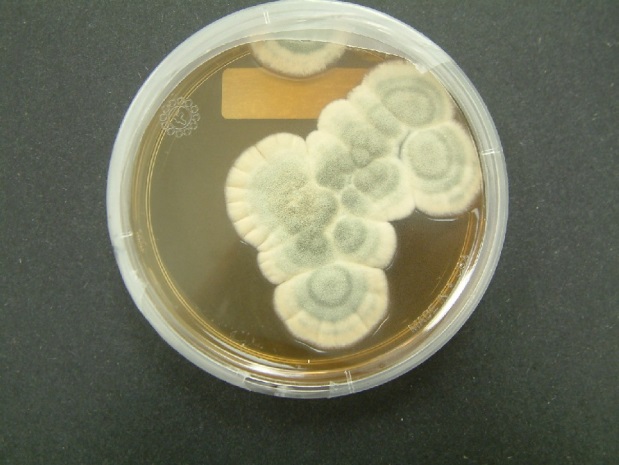Submitted by HLeSueur on 2 September 2016
Researchers at the University of South Florida show that fungi may be used to extract metals from rechargeable batteries. Typical battery recycling methods, such as smelting and acid leaching are damaging to the environment, requiring high energy input and generating harmful waste products. Looking into alternatives, Dr Jeffrey Cunningham and colleagues are investigating whether Aspergillus niger, Penicillium simplicissimum and Penicillium chrysogenum can extract cobalt and lithium from waste batteries. This research may pave the way for fungi to play a future role in battery recycling.


Aspergillus niger Penicillium chrysogenum (image by Crulina 98)
Fungal colonies growing on the pulverised pulp of cathodes from lithium ion batteries produce organic acids as they grow. An evaluation of the effectiveness of commercial versions of these organic acids (oxalic and citric acid) has demonstrated that up to 85% of the lithium can be extracted and up to 48% of the cobalt. The South Florida team has also already identified conditions for the quick growth of the 3 species of fungi. The next step is therefore to study the effectiveness of the fungi-produced versions of the acids, determine how well the fungi tolerate the extracted metals and evaluate the economic viability of this method of recycling.
News archives
-
Title
Date


